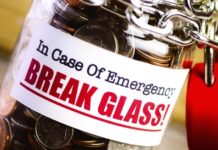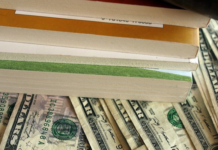
Like some 40 million Americans, Kevin Johnson suffered from Depression and Anxiety disorders. Today Kevin says his life is just as good as when he was 18. Shockingly a drug prescription has nothing to do with it.
Anxiety disorders are the most common mental illness in the U.S., affecting 40 million adults in the United States age 18 and older, or 18.1% of the population every year.
Depression blows. Anxiety isn’t any fun either. And perhaps the only thing worse than the well-intentioned friends and family who implore you to just “get over it” or advise you to “keep your head up” is the fact that there are approximately 3,102 crappy books out there promising to wave a little wand and sprinkle fairy dust in your ass, and everything will instantly be better.
I want to give this drug the right amount of time to see if the side effects will go away, but I am scared I am getting early onset dementia.
Suicidal Thoughts
I was on Celexa 20 mg for around 4 weeks, it helped me get a bit more stable but didn’t do anything else but that. But I had a very irritating side effect with it. So my psychiatrist wanted to set me on Lexapro 10 mg. I’ve been taking them for 3 days now and suddenly I got very vivid and very real suicidal thoughts. Like how I wanted to do it. Something I’ve never thought before. And it made me really scared.
I talked to my psychiatrist today and he wants to cut my dose in half and see how that goes. But I’m very afraid now of taking it again. I don’t want to do something that I will regret.
Out of ideas, I sought the help of my psychiatrist again. The doctor mentioned often times anxiety and depression occur together. In fact, they occur so often together that people will mistake one for the other.
I felt depressed for a brief period at the beginning of this year and looking back, it turns out I was incredibly anxious about something in my life and the feelings of lethargy/meaninglessness were merely my ways of escaping that anxiety.
So anxiety and depression are like two peas in a pod. They’re a package deal. Much of what you’ll get from these books is an understanding between the two and recognizing when one or the other takes over.
Good Signs
Determined to find a fix, I researched and read a lot of books about anxiety and depression over the years and this is the best one I’ve come across. This book is way more qualified than I am to help you through whatever suckage you’re experiencing.

Solomon calls his book “An Atlas of Depression” and once you’ve covered about half of the 688 pages, you start to realize why: this is everything you would ever want to know about depression—the personal experience of it, the medical experience of it, the pharmacological treatments, the history of it, the cultural interpretations of it, and of course, Solomon’s own struggles with it. The book is a lot to take in. What carries the book, though, is the combination of how well-written it is, along with the shocking severity of Solomon’s own story.
I’m going to be honest. I’ve been reading about depression and mental health for many years. I’ve even suffered from some mild depressive episodes myself. I had no idea the depths this thing can reach. This is the only book I’ve ever read that makes me understand why a person might choose to end their own life.
Reading Noonday Demon changed a number of my attitudes and assumptions that I’ve had about not just depression, but antidepressants, therapy, and mental health. Had I read it while depressed myself, it would have surely given me more hope for my own situation, as well as helped me navigate getting myself out of it.
Will This Work For You?
There is a lot of Depression solutions you can try. Some of them include taking medicines with dangerous side effects. Others involve self mutilation. With so many options it’s only normal to be skeptical about results. So instead of promising our readers anything we challenge you to follow in my footsteps and try it yourself.
Click Here For Your Copy












